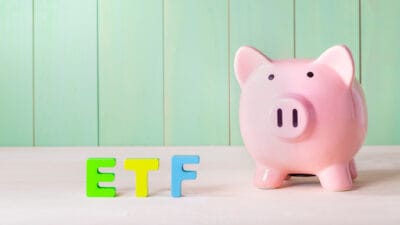Index funds have been surging in popularity on the ASX in recent years. In fact, the entire exchange-traded funds (ETF) space has exploded. The ASX now offers more ETFs and index funds today than it ever has before. And the most popular is the Vanguard Australian Shares Index ETF (ASX: VAS).
This ASX index fund offers a simple, bottom-drawer investment that investors can feel comfortable buying and never checking up on. That's because it simply tracks the largest 300 companies on the Australian share market at any one time. That's everything from National Australia Bank Ltd (ASX: NAB) and Telstra Group Ltd (ASX: TLS) to JB Hi-Fi Ltd (ASX: JBH) and Adairs Ltd (ASX: ADH).
Of course, the value of all ASX shares changes every day that the share market is open. But to make sure that the fund is always holding the largest 300 companies, the VAS ETF undergoes a rebalance every three months. As such, the owners of VAS can choose to never look at or think about their investments and still expect to continue to receive a return that reflects the ongoing prosperity of the Australian share market as a whole.
But the Vanguard Australian Shares ETF's popularity doesn't automatically mean that it is the best bottom-drawer, passive investment available on the ASX.
So today, let's look at the returns of some of VAS' competition, and see how they stack up.
Is the ASX's VAS ETF the best bottom-drawer investment out there?
How does VAS measure up to ASX alternatives?
Well, the first thing to note is that there are plenty of other index funds on the ASX that have delivered better returns than the Vanguard Australian Shares ETF.
To illustrate, Vanguard Australian Shares ETF has delivered a total shareholder return (including dividends) of 2.4% over the 12 months to 31 October 2023. Over the past three, five and ten years, that stretches to an average of 8.68%, 7.16% and 6.51% per annum respectively.
But the iShares S&P 500 ETF (ASX: IVV), an index fund covering 500 of the largest companies on the US markets has done a lot better. It's returned 10.87% over the past year. It has also averaged 13.89%, 13.18% and 15.52% over the past three, five and ten years respectively.
The BetaShares Nasdaq 100 ETF (ASX: NDQ), which tracks the more tech-heavy Nasdaq exchange, has done even better.
But these aren't really fair comparisons because they track shares that aren't even listed on the ASX. Our local shares can't really compete with the world-crushing dominance of the likes of Apple, Microsoft and Amazon. Plus, these ETFs have also benefitted enormously from the Australian dollar's continued weakness against the US dollar of the past decade.
We won't bother comparing against any other ASX 200 ETF either. These ETFs are very similar to VAS's own portfolio but put more emphasis on the top holdings while leaving out the bottom third.
What about an equal-weight ASX index fund?
Because of the way that both an ASX 200 and an ASX 300 ETF give more weight to the larger companies on the index, changing the bottom yields have negligible results.
A fairer comparison would be against the VanEck Australian Equal Weight ETF (ASX: MVW). This ETF also tracks the largest 200 ASX shares on the market. But instead of giving the largest companies the most exposure, it allows every share an equal influence.
Thus, NAB and Adairs, for example, are both represented in the same proportion.
Let's now see if this different approach leads to better performance figures.
As of 31 October, the MVW ETF delivered a 12-month return of 3.89%. That gets up to an average of 8.68% per annum over the past three years, and 6.97% over the past five.
So no, this ETF has not managed to deliver superior returns compared to the uber-popular VAS, at least apart from the past year. Something to keep in mind when looking for a bottom-drawer investment.








